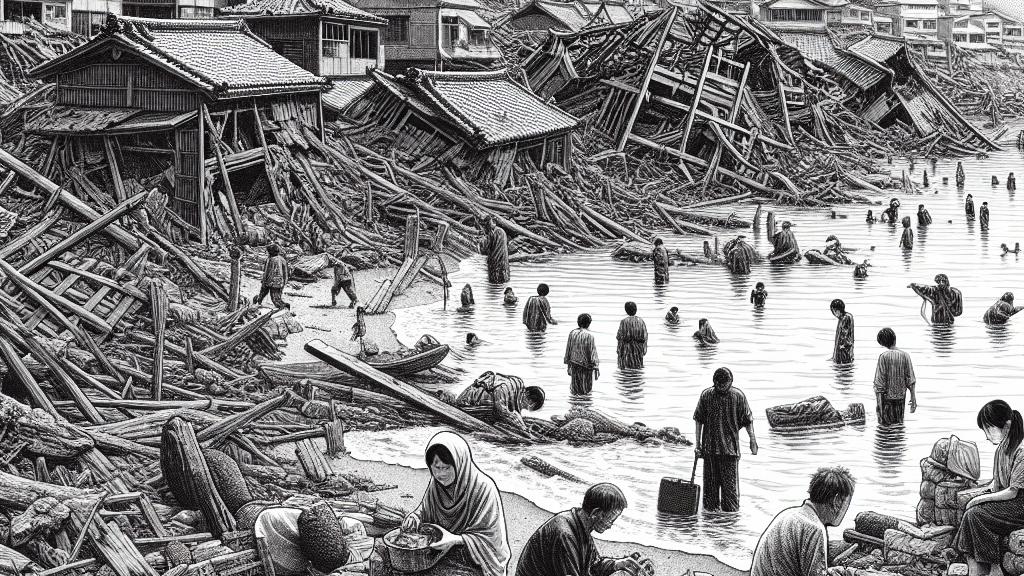Despair in the Shelters: The Unseen Toll of Noto Peninsula Earthquake
Overview
- Shelters are critically overcrowded, with residents facing severe food and resource shortages.
- Government financial aid has been slow and ineffective, neglecting immediate survivor needs.
- Rising health risks, emotional strain, and systemic failures compound the suffering of affected individuals.

A Devastating Earthquake: The Noto Peninsula's Crisis
On January 1, 2024, Japan's Noto Peninsula was struck by a staggering earthquake, registering a powerful magnitude of 7. This disaster has resulted in over 300 deaths, further exacerbating the already fraught situation of the survivors who were forced to abandon their homes. Nearly eight months post-disaster, thousands are still living in temporary shelters, enduring conditions that are both harsh and unacceptable. Reports indicate that residents are provided with only one inadequate meal per day, which poses serious threats to their physical health and emotional well-being. As they grapple with a lack of resources, survivors face unimaginable challenges in their struggle for survival.
Public Outcry: Frustration Amid Administrative Negligence
Many residents have attempted to voice their grievances regarding the deplorable living conditions, only to face indifference or outright dismissal from local officials, including the mayor of Suzu City. Disturbingly, cases of elderly individuals succumbing to economic class syndrome—a condition resulting from prolonged immobility in inadequate conditions—have surfaced. While the government has announced plans to provide a significant financial package to support recovery efforts, including 520 billion yen pledged to the region, the delivery of this aid has been sluggish and ineffective. Many survivors report feeling neglected and unheard, as they struggle against an indifferent bureaucratic system that seems slow to respond to their urgent needs.
Dire Living Conditions: A Public Health Crisis in the Making
Currently, around 2,000 individuals are crammed into 191 shelters across Ishikawa Prefecture, revealing the overwhelming impact of this disaster. The reality of living in these saturated shelters, where residents receive only one low-quality meal each day, is dire for the mental and physical health of these communities. Many families lack basic utilities such as running water and electricity and are forced to rely on shelters that lack adequate facilities. The complexities and limitations of housing applications further amplify their stress and emotional fragmentation. Residents share harrowing testimonies of their struggles, calling for immediate relief and systemic changes to ensure a dignified recovery process that prioritizes their needs and rights.

Loading...